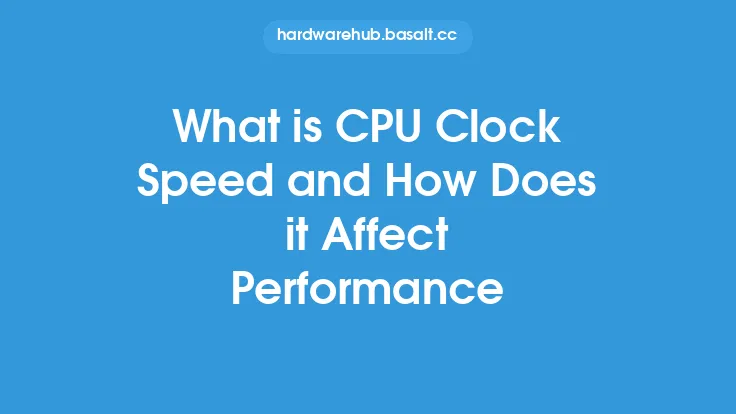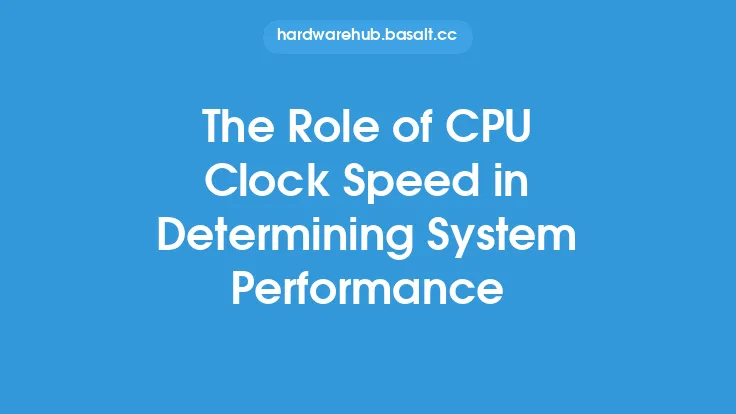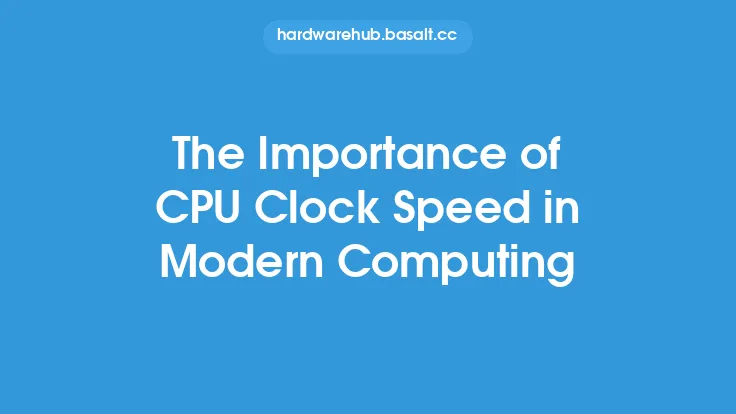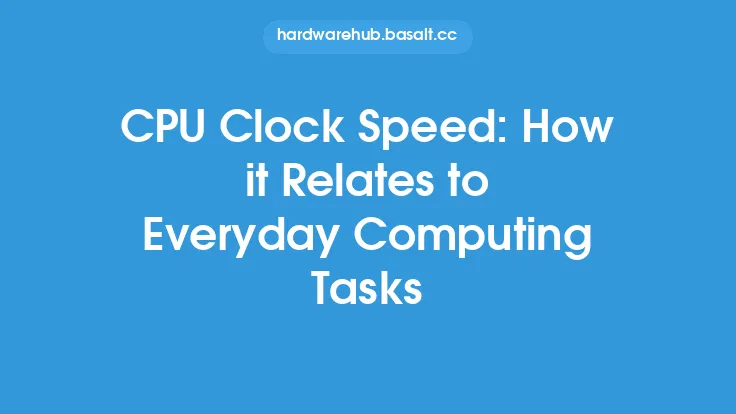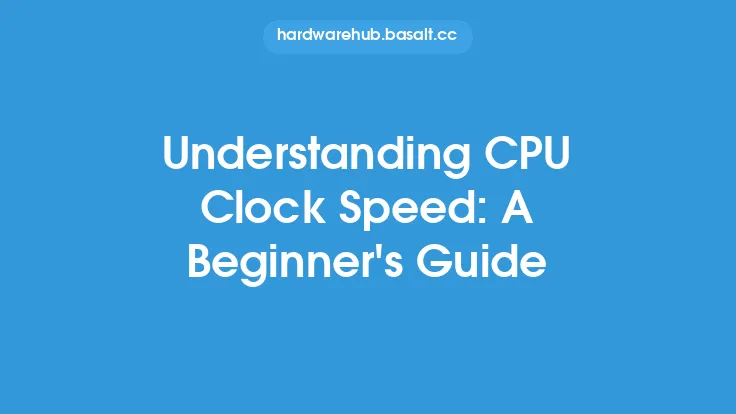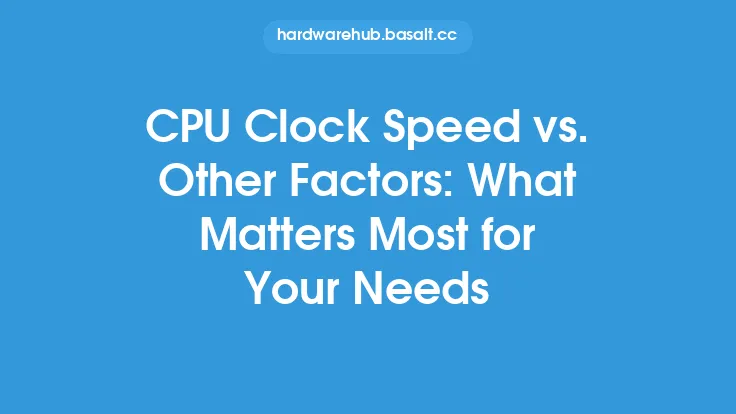The central processing unit (CPU) is a critical component of any gaming system, and its clock speed plays a significant role in determining gaming performance. CPU clock speed, measured in gigahertz (GHz), refers to the number of instructions that a CPU can execute per second. A higher clock speed generally indicates better performance, but its impact on gaming is more complex than a simple increase in clock speed.
Introduction to CPU Clock Speed and Gaming
In the context of gaming, CPU clock speed affects the system's ability to handle tasks such as game logic, physics, and AI. Modern games often rely on multi-core processors to distribute these tasks, but the clock speed of each core still plays a crucial role. A faster clock speed allows the CPU to execute instructions more quickly, which can result in smoother gameplay, reduced loading times, and improved overall performance. However, the relationship between CPU clock speed and gaming performance is not always linear, and other factors such as the number of cores, thread count, and memory bandwidth also come into play.
The Impact of CPU Clock Speed on Game Performance
The impact of CPU clock speed on game performance can be significant, especially in games that are heavily reliant on CPU processing power. For example, games that feature complex physics, AI, or simulations can benefit greatly from a higher clock speed. In these cases, a faster CPU can handle the increased workload more efficiently, resulting in improved frame rates, reduced lag, and a more responsive gaming experience. On the other hand, games that are more graphics-intensive may not benefit as much from a higher clock speed, as the graphics processing unit (GPU) is often the bottleneck in these scenarios.
CPU Clock Speed and Multi-Threading
Multi-threading is a technology that allows a CPU to handle multiple threads or tasks simultaneously, which can greatly improve performance in multi-core processors. In the context of gaming, multi-threading can help to distribute tasks such as game logic, physics, and AI across multiple cores, reducing the workload on each individual core. A higher clock speed can further enhance the benefits of multi-threading by allowing each core to execute instructions more quickly. However, the effectiveness of multi-threading also depends on the game's ability to utilize multiple threads, as well as the number of cores and threads available.
CPU Clock Speed and Power Consumption
One of the downsides of increasing CPU clock speed is the corresponding increase in power consumption. As clock speed increases, the CPU requires more power to operate, which can result in increased heat generation, noise, and energy costs. This can be a significant concern for gamers who value energy efficiency and low noise levels. To mitigate this issue, many modern CPUs feature dynamic voltage and frequency scaling (DVFS), which allows the CPU to adjust its clock speed and voltage based on the workload. This can help to reduce power consumption and heat generation during periods of low usage.
CPU Clock Speed and Overclocking
Overclocking is the practice of increasing a CPU's clock speed beyond its factory-set limit. This can be done to squeeze out extra performance from a CPU, but it also increases the risk of system instability, overheating, and reduced lifespan. In the context of gaming, overclocking can be beneficial for gamers who want to extract the maximum performance from their CPU. However, it requires careful consideration of the CPU's power consumption, heat generation, and cooling capabilities. Additionally, overclocking may void the CPU's warranty, and it is not recommended for gamers who are not experienced in this area.
Conclusion
In conclusion, CPU clock speed plays a significant role in determining gaming performance, but its impact is complex and influenced by various factors such as the number of cores, thread count, and memory bandwidth. A higher clock speed can result in improved frame rates, reduced lag, and a more responsive gaming experience, especially in games that are heavily reliant on CPU processing power. However, the relationship between CPU clock speed and gaming performance is not always linear, and other factors such as power consumption, heat generation, and overclocking must also be considered. By understanding the impact of CPU clock speed on gaming performance, gamers can make informed decisions when selecting a CPU for their gaming system.
